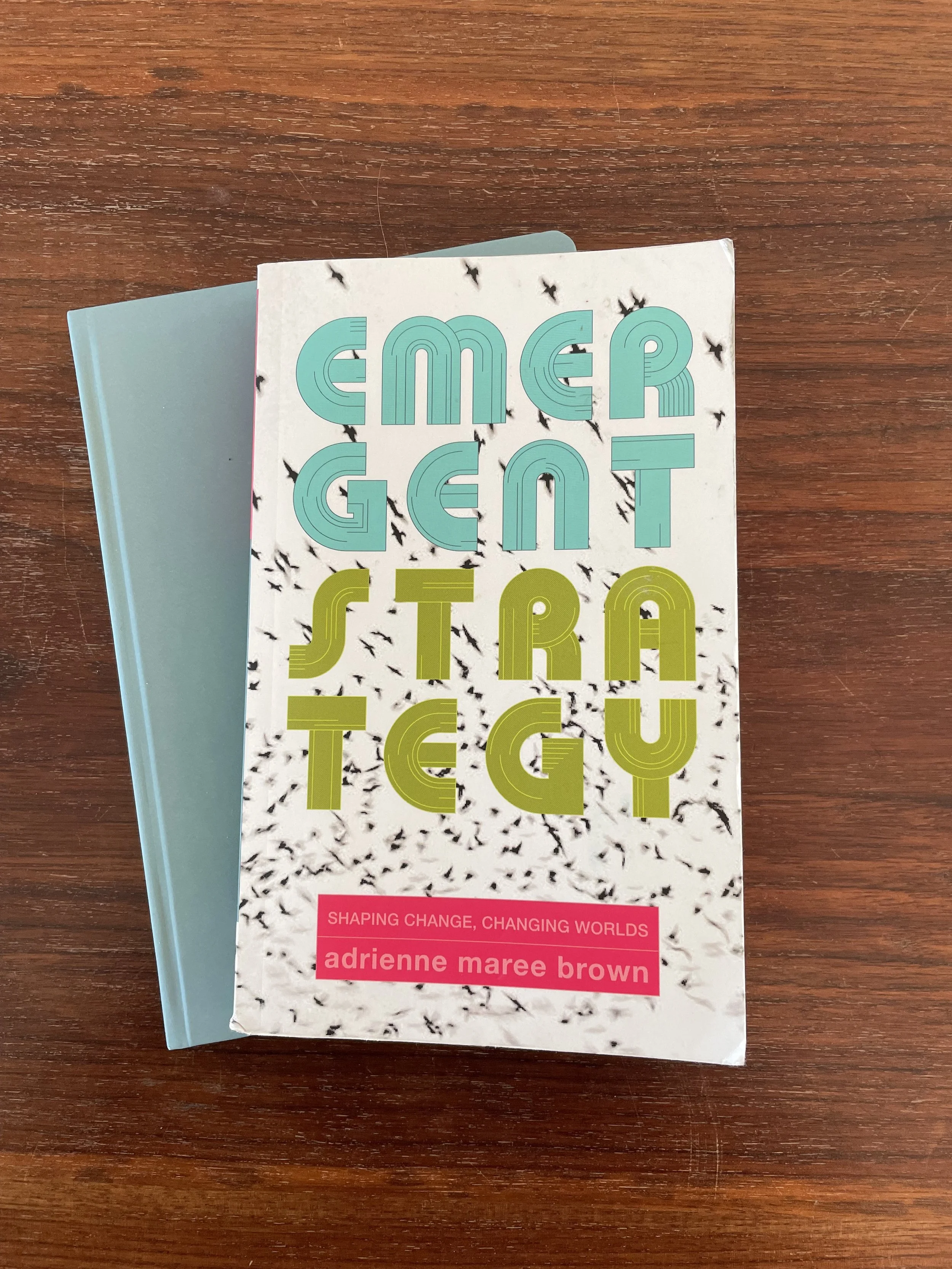My contribution is practice based evidence.
It is county fair season (and street festival season, for urban readers).
With corn dogs, freshly squeezed lemonade, ferris wheels, and blue ribbons on the brain, I am reprising my hand-drawn metaphor of evidence based practice (EBP) as a bridge and practice based evidence (PBE) as a county fair midway here on my website, for you.
The inspiration for the drawing you see above, and the rest of this post, comes from a mimeographed copy of Bernice Johnston Reagon’s talk-turned-essay Coalition Politics: Turning the Century, which has been the assigned reading from my graduate studies that I have re-read the most over my twenty years doing community psychology. Reagon’s comments to a 1981 women’s festival in Yosemite, CA have guided almost all of my efforts, as a white woman, to end sexual violence in the 1990s, 2000s, and 2010s. I think Reagon’s ideas will be just as important in 2020 and beyond.
“Coalition work is not done in your home. Coalition work has to be done in the streets. And it is some of the most dangerous work you can do. And you shouldn’t look for comfort. Some people will come to a coalition and they rate the success of the coalition on whether or not they feel good when they get there. They’re not looking for a coalition; they’re looking for a home!”
When given a podium and the opportunity to address a university-based audience in 2014, I drew inspiration from Coalition Politics to draw the metaphor at the top of this page. My hope then was to encourage prevention-oriented academics to not only look for gaps between binaries (science/practice, research/action, university/community) in which to build bridges (those elegant feats of engineering, architecture, and construction), but to also recognize the value of street-level work and to come down from the Ivory Tower to walk the in-between spaces alongside unlikely partners.
Here’s how I arrived on the podium. When I first started my consulting career in the early 2010’s, I was fortunate to work with the Pennsylvania Coalition Against Rape in the aftermath of the Jerry Sandusky case at Penn State. One component of PCAR’s statewide mobilization was an action research project that paired each of three Penn State branch campuses with a local rape crisis center to establish long-term preventive solutions to campus sexual misconduct. PCAR published the tools that were developed to guide joint prevention efforts between rape crisis centers and college and university campuses.
At the time this project was culminating, a friend and colleague was unable to accept an invitation to participate in Penn State’s Third Annual Conference on Child Protection and Well-Being and gave the organizers my name. So, in May of 2014, I wrote a talk that used metaphors of a bridge and the midway at a county fair to share important lessons I had learned from working with PCAR, Penn State, and in my first three years as an independent consultant. Following the conference, I had the opportunity to write this chapter in the volume that summarized the proceedings of the conference.
Here are the cliffnotes, previously blogged about here:
2) However, sexual violence is a wicked problem, which means that…
3) it will take more than science to end sexual violence in this lifetime.
4) Movements to end sexual violence will require systems thinking
5) and working together to generate evidence —
6) and co-create knowledge — that drives better decisions about resource allocation, strategies, and program activities.
The kind of evidence that is co-created by evaluators and practitioners is "practice based evidence." Partnerships and processes that generate PBE can feel messy and dizzy-making; but also dynamic, exciting, and rewarding -- not unlike the midway at the county fair.
Long before I peeked into the marketing world to improve prevention practices and learned that good communication ends with a “call to action,” I loved the ending to Reagon’s Coalition Politics:
“...take what this weekend has meant — try to digest it. And first thing, Monday, Tuesday morning at work, before twenty-four hours go around, apply it. And then do it everyday you get up and find yourself alive. Thank you.”
To put my closing in context, today is Tuesday. This weekend, on Friday, a close family member died, and I took myself to the grocery store to prepare meals for beloveds. On Saturday, my daughter and I went to a street festival, drank fresh-squeezed lemonade and watched my dad perform taiko. On Sunday, the US Women’s National Team made history by winning a fourth FIFA Women’s World Cup, and I vowed to stop giving my kids a hard time about time and money our family dedicates to soccer. Then, my refrigerator stopped working, just to say, “life goes on.”
Today I got up and found myself alive. After getting breakfast out of a cooler in the kitchen, I sat down to digest what this weekend has meant and wrote this entry. This weekend tells me: time is precious. And that teams prepared with a no-quit mindset can accomplish and inspire. Given the scale and urgency of current problems, my call to action from May 2014’s talk seems modest and doable:
Go to your local County Fair this summer.
Understand your place in the system.
Ask good questions — of, with, and for the benefit of the local community.
What are you doing? Would you like to try? Why is this important? Does that make sense to you? Would this be better? What would need to change for you to participate fully, too? What can we do together that will prevent sexual violence in the future?







